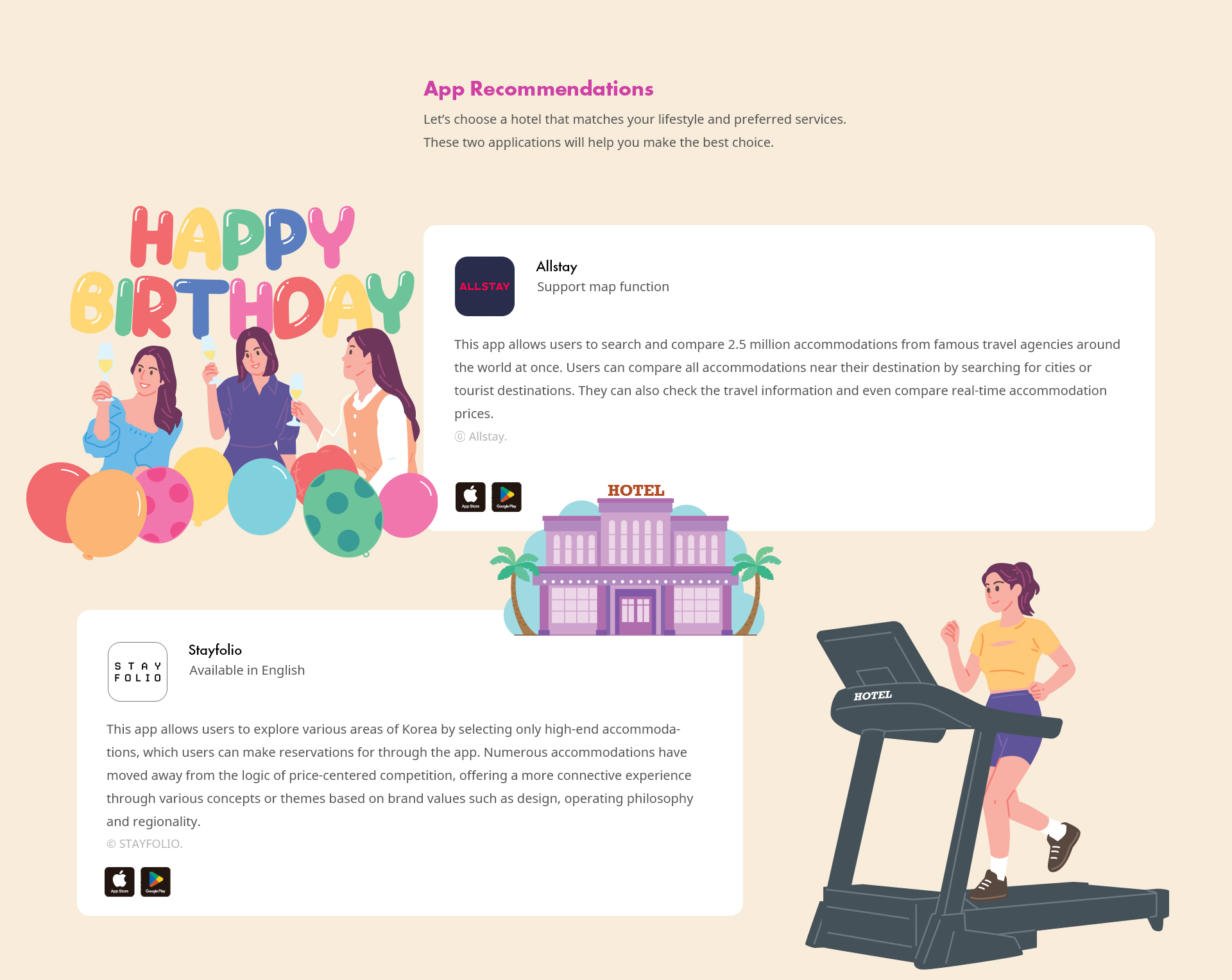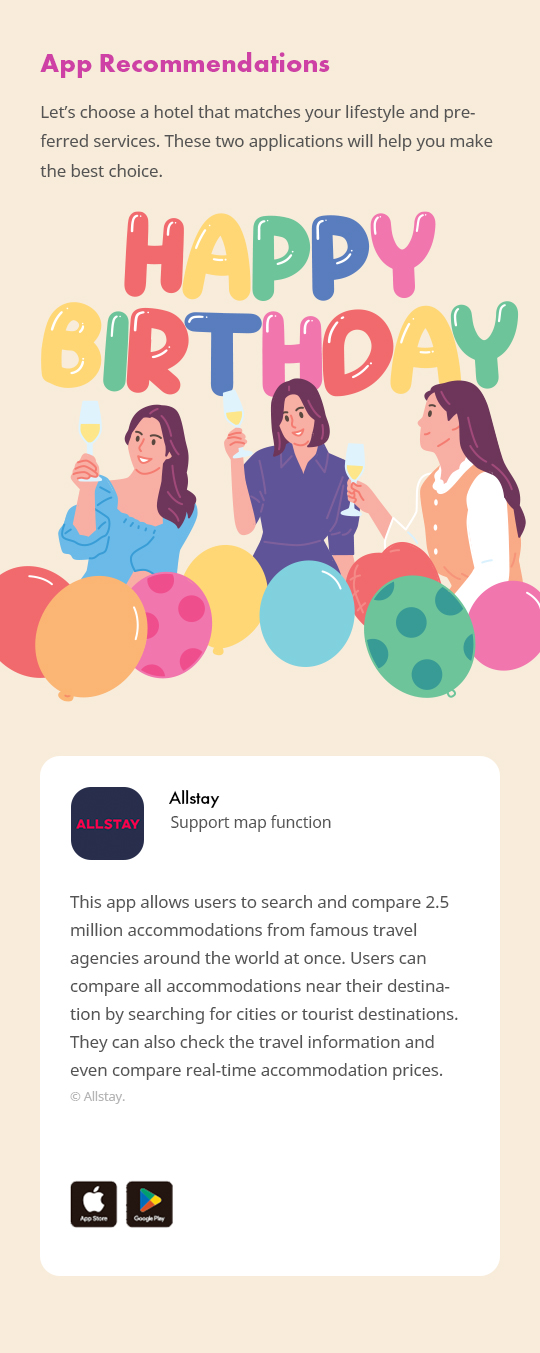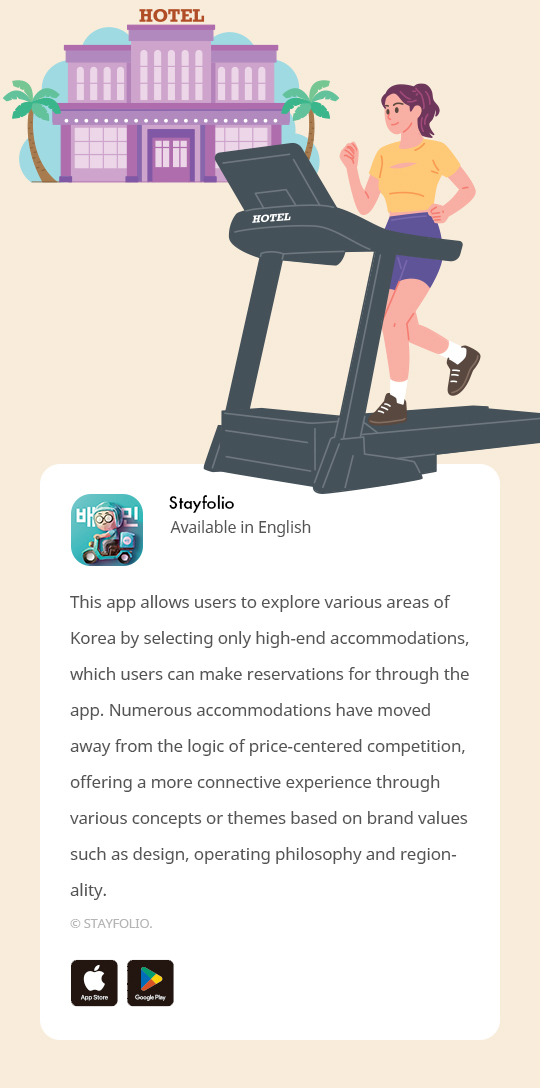People often hesitate to travel long distances when their minds and bodies are tired, but they feel somewhat disappointed when they don’t go on vacation. After some slight hesitation, people have now opted for going to hotels as their final travel destination. They simply have to pack a swimsuit, a book to read, a Bluetooth speaker, their favorite beverage, a camera and comfy pajamas, and they can be on their way. This has led to the creation of the new word “hocance” in Korea, referring to the phenomenon of people vacationing at a hotel.
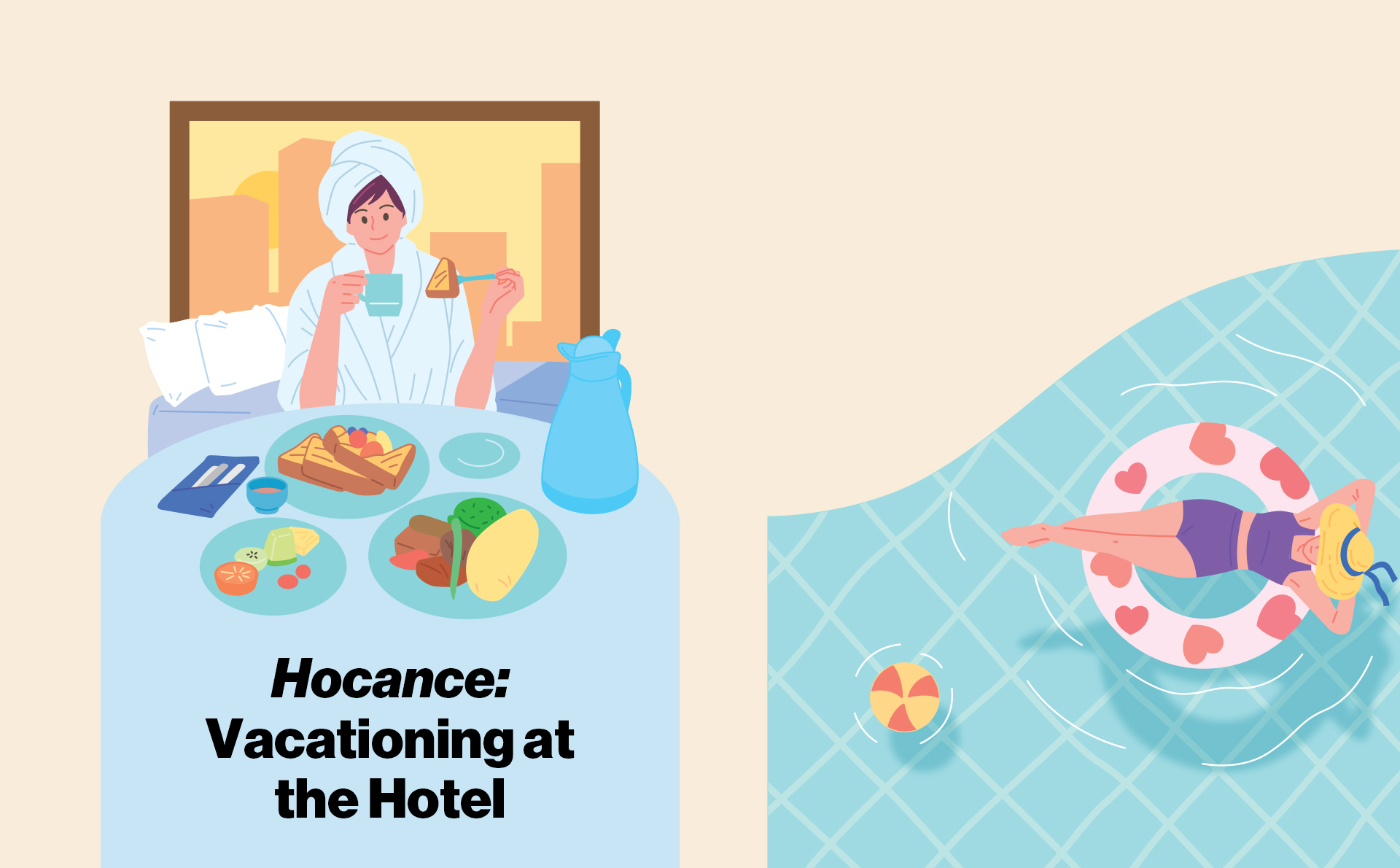
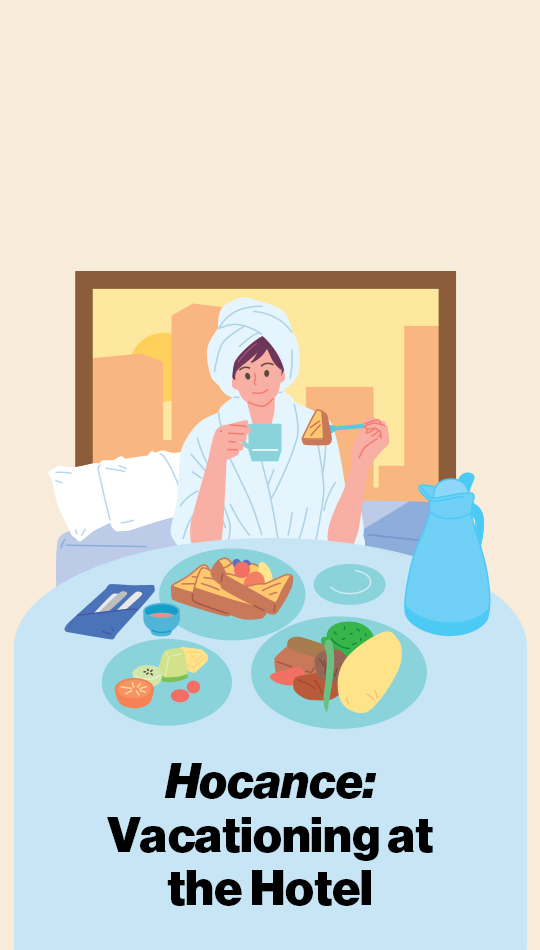
Writer.
Choi Yeonu
Illustrator.
RYUGOON
Hocance, an Alternative to Traveling
People endured so much during the pandemic, from everyday encounters to travel. Refraining from doing anything that could lead to infection was considered a virtue. However, people became tired of the endless quarantine and began looking for hotels where they could relieve their stress and change their moods by visiting new spaces. People could enjoy themselves in a private space without contacting others. They could look at the scenery outside and refresh their minds by ordering delicious food through room service. Hotels began offering various promotions to encourage people to enjoy various leisure activities at their location instead of outdoors, and the hocance culture emerged. Hocance is a word that combines ho from the English word “hotel” and cance from the French word “vacance,” which means “vacation.”
Korean writer Kim Young-ha explained on a broadcast that the reason for the hocance craze is because “there are no worries about daily life at a hotel.” Kim added, “You don’t have to travel to a far-away country to avoid the thoughts and pain of everyday life.” It can be challenging to feel a sense of freedom from everyday life in a familiar environment, but there’s no need to travel far as hotels have become a sufficient alternative to travel.
The era of the pandemic has come to an end, but people are still visiting hotels. This is because there has been an increase in the number of people from the younger generation who prioritize their own satisfaction and having a good experience. They don’t hesitate to open their wallets even for something expensive if it means they can have a satisfying experience. Thanks to this, hotels costing KRW 500,000 (around USD 360) or even one million KRW (around USD 720) a night are quickly booked.
A Customized Place for Recreational Relaxation
People who want a hocance experience choose a hotel after considering numerous conditions. Hotels are chosen based on various criteria that suit each individual’s tastes, such as cleanliness, accessibility, breakfast options, view, interior design, bathing area, terrace, bedding material and whether or not pets are allowed.
Luxury hotels have a restaurant, a lounge with a bar, a fitness center, a swimming pool, a spa and a sauna. People who choose to go on a hocance enjoy all of the services offered by a hotel to the fullest. They appreciate the delicious food at the hotel restaurant and drinks at the bar in the lounge. They use different exercise equipment in the fitness center to refresh their tired bodies and relax in the sauna or with a massage after swimming. Hotels provide a variety of services, so the number of people who stay there for half a day rather than overnight has increased. This refers to as “bancance,” a word that replaces the ho in “hocance” with ban meaning “half.” It has also become common to see people using hotels during the day to hang out or party with friends or use hotel facilities such as room service or the gym. In many cases, people only spend half a day at a hotel to rest on nice bedding.
People using hotels and having their own relaxation time has become a typical consumption pattern during the Korean vacation season. Searching for hocance on Instagram results in over 3.26 million posts. Numerous hocance vlogs are posted on YouTube every day. The amount of content depicting people enjoying hocance has increased exponentially since the word first appeared in Korean society. Hocance can, therefore, be seen as Korea’s representative leisure culture or trend.
